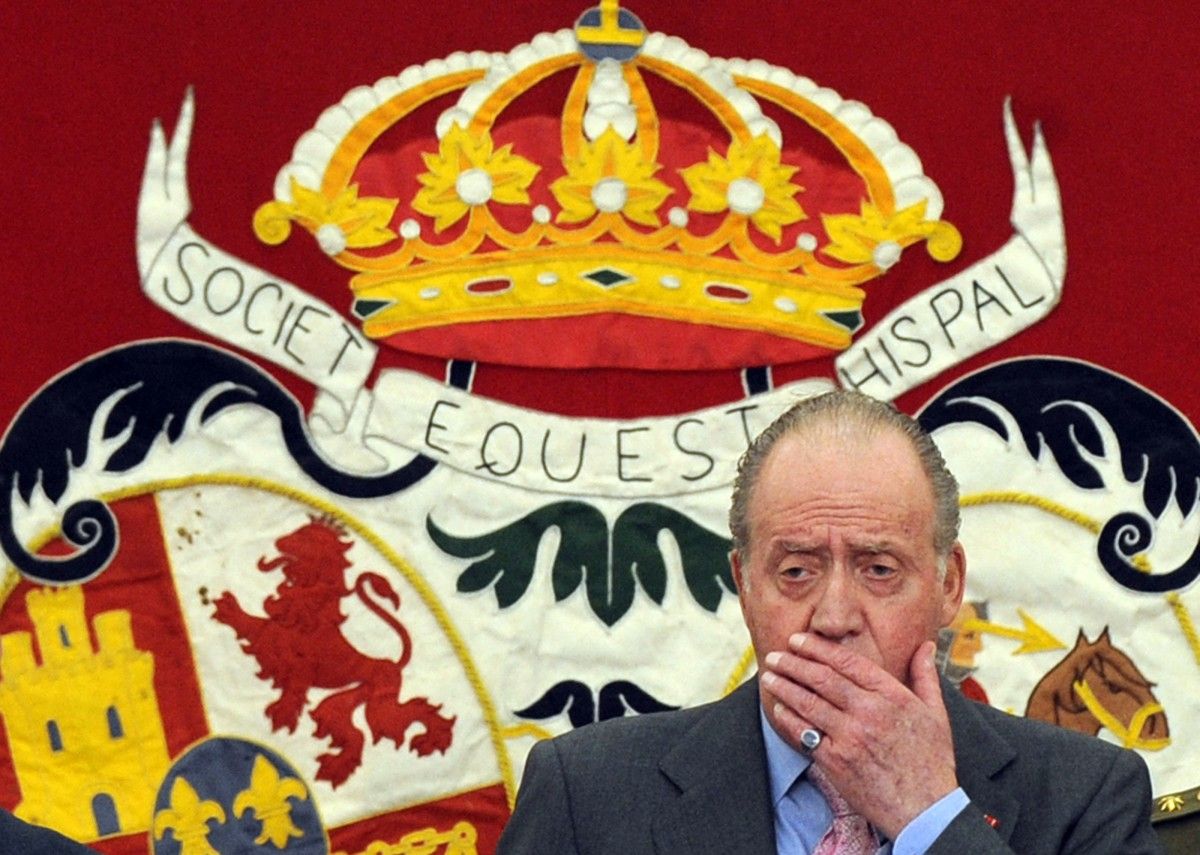
The newly released memoirs of former King Juan Carlos are stirring intense discussion in Spain as the country marks 50 years since Franco’s death. The book reopens long-standing disputes about the monarchy, dictatorship, and Spain’s path to democracy.
Exiled former Spanish King Juan Carlos's memoirs have sparked renewed debate in Spain over his legacy and ties to the late dictator General Francisco Franco.
Its publication coincides with the 50th anniversary of Franco's death on November 20, 1975 and the commemoration of Juan Carlos's proclamation as king two days later.
In the book, the 87-year-old former monarch reflects on his role in Spain's transition to democracy, his strained family relationships, and the "mistake" of accepting millions of euros from Saudi Arabia.
The 500-page biography, Reconciliation, co-written with French author Laurence Debray, was published in French on Wednesday and is set for a Spanish release on December 3.
Among the book's most controversial passages are Juan Carlos's warm words for the dictator Franco, who ruled Spain after his forces won the country's devastating 1936-39 civil war.
The former king wrote that he had "great respect" for Franco, who brought him to Spain from exile aged 10 to be raised as his successor. He said the general "could even be somewhat tender and benevolent".
"I appreciated his intelligence and his political acumen. I never allowed anyone to criticise him in front of me," he added.
Culture Minister Ernest Urtasun condemned the remarks on Thursday, calling it "sickening that nowadays someone would still dare to defend or justify the dictator".
'Own interpretation'
Juan Carlos is widely credited with guiding Spain toward democracy after the dictator's death in 1975.
He disappointed Francoists by supporting a parliamentary system within a constitutional monarchy.
Urtasun, of the far-left party Sumar, which opposes the monarchy, argued that democracy was achieved by "thousands of anti-Franco fighters who risked everything, who suffered torture, who endured imprisonment".
Former Socialist Prime Minister Jose Luis Rodriguez Zapatero also weighed in, saying Juan Carlos should have "tempered his words" about Franco, whose regime relied on executions, imprisonments of political opponents and strict state censorship.
Juan Carlos, who has lived in self-imposed exile in the United Arab Emirates since 2020, is not scheduled to attend official events on November 21 marking the 50th anniversary of his proclamation as king the following day.
The royal household said this was consistent with his decision to step back from official duties, a move taken five years after he abdicated in 2014 in favor of his son, King Felipe VI. It declined to comment on the memoirs.
'Sugar-coated biography'
David San Narciso Martin, a contemporary history professor at Madrid's Complutense University, said the memoirs' release appeared timed to give Juan Carlos "a voice" in the commemorations and allow him to provide "his own interpretation of his reign".
"The image he presents of Franco is quite unique," Martin told AFP.
Martin believed that the king was mistaken to suggest in his memoirs that Franco had anticipated he would bring democracy to Spain.
"Memory is always fragmented, and working with it can be risky, because every act of remembering is, in some way, an act of reinvention," the historian said.
Public opinion turned sharply against Juan Carlos in 2012, after it was revealed that he had gone on an extravagant elephant-hunting trip in Botswana as Spaniards suffered at the height of their financial and economic crisis.
While Juan Carlos acknowledges personal missteps, including financial scandals and extramarital affairs, critics say the memoir is largely an effort at image rehabilitation.
Author Luz Sanchez-Mellado called the book a "sugar-coated biography" in daily El Pais, writing that it depicts a monarch "so used to his every wish being law... he can't fathom that no one obeys him anymore."
Despite being available only for pre-sale in Spanish, the memoir is the top-selling non-fiction book at Spanish bookshop chain Casa del Libro.
Juan Carlos wrote in the book that he finally agreed to publish his memoirs, despite his father having warned him never to do so, because his story "was being stolen from me".
By Daniel SILVA / AFP
Comments